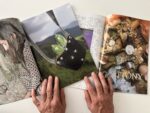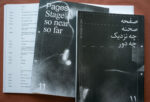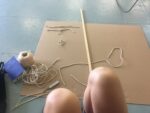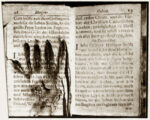The 2 days workshop starts from looking into the possibilities given by the magazine as a format for artistic publications.
If any publication implies a multiplicity of relations and functions, depending on different expertise in the editing and printing process, a magazine entails as well a variety of authors and sources, a diversity of literary genres, and a large spectrum of relationships between the writer/performer and the reader/spectator. A magazine can also alter and play with the tensions and the hierarchies between the serious and the banal. All these features would overflow the centralized and isolated role of the editor.
How can the format of the magazine be a template or a tool to rethink and project new distributions in the architecture of our artistic research? How would this editing speculation affect the internal distribution of our work? How would the performative specificities of this format trigger the publication of one's artistic processes? How would it map an ecosystem of accomplice practices as well as trace genealogies?
We will take as example the magazine ROT Issue Zero/SKIN (2020) and ROT #1/IMMUNITY (still in the making).
Working times: 10:30am- 1pm & 2-4pm
Reach out if you want to participate in the workshop! Send an email to Hans @ apass.be, before June 23.
a.pass is located on the 4th floor inside the Brussels Event Brewery building. The studio is wheelchair accessible via elevator.
Sara Manente studied dance and semiotics before moving to Brussels, where she works as artist, mentor and researcher. In 2008, she graduated from a.pass postmaster program and later participated in the Research Center Cycle 1. More recently, her work reflects on the possibility of contamination between pedagogy, research, performance and publication resulting in a variety of formats: from the choreographic and sculptural work of MOLD, to the editorial and curatorial practice of ROT magazine and Gardens. The situations she promotes are highly collaborative.
Jaime Llopis graduated in Drama at ESAD (Valencia) and studied dance and Choreography in EDDC (Arnhem). He has lived in Brussels since 2003, where he graduated in a.pass postmaster program. He is currently studying philosophy at UNED. His artistic research focuses on the body as a hinge between praxis (ways of doing) and perceptive patterns.



